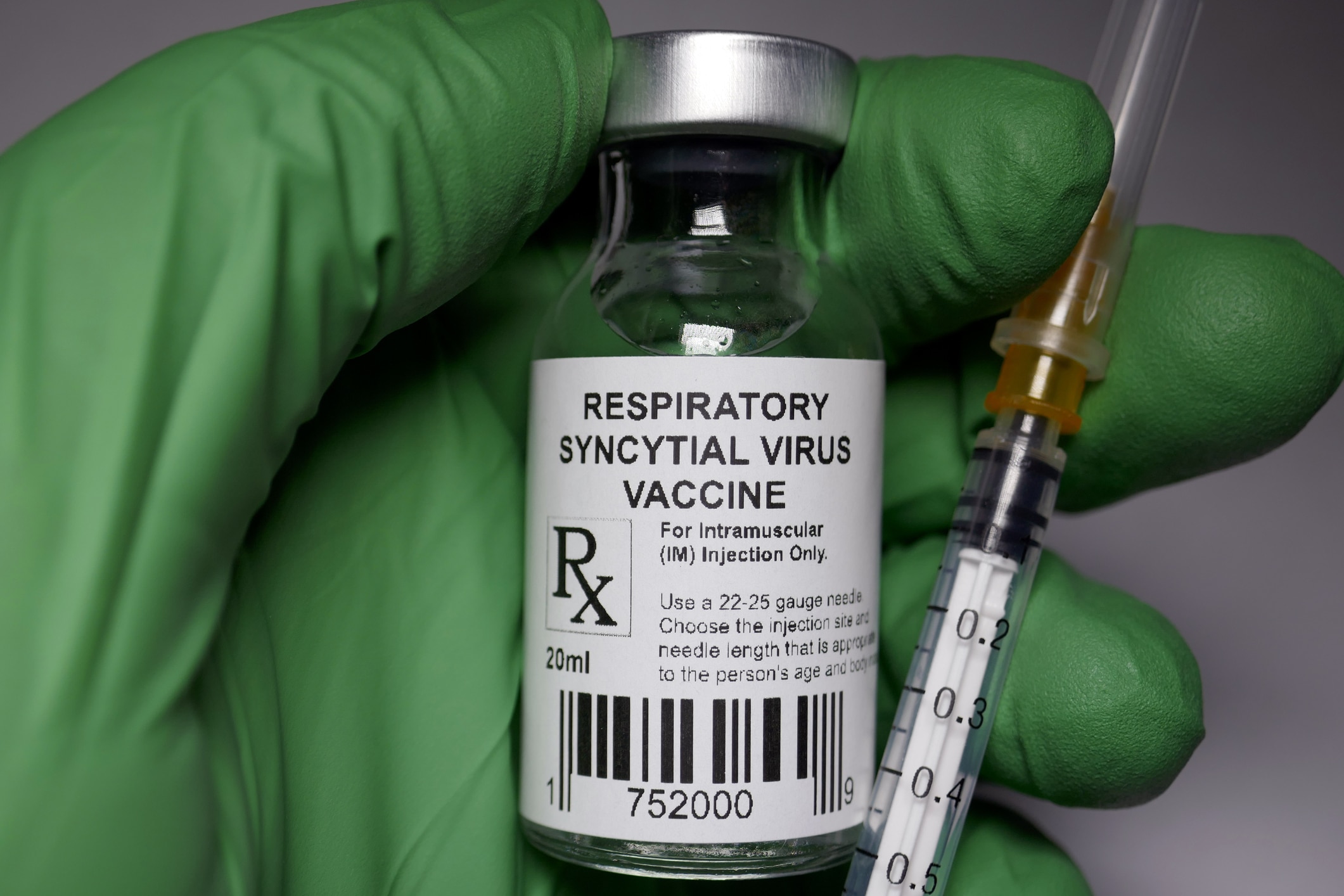TOPLINE
The FDA is expected to make a decision on RSV vaccine approval by the fall in anticipation for the winter—and here are some of the top contenders that have shown promising signs in trials.
KEY FACTS
Respiratory syncytial virus (RSV) is a common respiratory infection that typically causes mild, cold-like symptoms, but can lead to serious lung infections—children, older adults and those with underlying health conditions are the most susceptible, according to MedlinePlus.
The virus gained momentum during the winter season, causing 47.9 for every 100,000 hospitalizations during the 2022-2023 season, and over 126,000 detected cases between October 2022 and November 2022.
Prominent symptoms include a runny nose, cough, fever, wheezing, decrease in appetite and sneezing, but infants may only show irritability, have breathing difficulties or decreased activity.
No RSV vaccine has been approved by the Food and Drug Administration, but the first attempt was made in the 1960s, which was unsuccessful as it led to severe and lethal cases of lung inflammatory response in infants.
According to public health nonprofit PATH, there are 11 RSV vaccines being studied in trials—four are designed for infants and seven are for older adults.
SURPRISING FACT
Almost all children will have had an RSV infection by their second birthday, and most infections go away on their own, according to the Centers for Disease Control and Prevention.
CRUCIAL QUOTE
Dr. Barney Graham, a senior adviser for global health equity at Morehouse School of Medicine, told NBC News he believes all the vaccines “are going to work well enough to be approved, depending on the side effect profiles.”
VACCINES FOR OLDER ADULTS (60 AND UP)
- GLAXOSMITHKLINE’S phase three trial study on the GSK vaccine’s efficiency, as published in the New England Journal of Medicine on Wednesday, found the shot lowered the risk of severe illness by 94% and of symptomatic illness by 83% in adults 60 years and older. Participants with comorbidities (having more than one disease or illness at a time), who are at an increased risk of severe outcome from RSV, also saw positive results from the vaccine. The most common adverse events from the shot were pain at injection site, fatigue, headache and myalgia (muscle aches and pain). A previous study published in October 2022 reported the vaccine had an overall vaccine efficiency of 82.6% in adults 60 years and older.
- Johnson & Johnson’s vaccine phase two trial report published in the New England Journal of Medicine on Wednesday saw an 80% vaccine efficiency rate in adults 65 years and older. The study’s main goal was preventing the occurrence of lower respiratory tract infection as a result of RSV, and the protection ranged from 80% in preventing lower respiratory tract infections, and 70% for milder cases. Serious adverse events were reported in 4.6% of vaccine participants and 4.7% of the placebo group.
- Moderna’s vaccine for older adults is a messenger RNA(mRNA) vaccine, similar to its Covid shot. The vaccine uses mRNA, which helps give instructions to the body’s cells, allowing them to create small parts of the RSV virus that creates an immune response in the body. In January, Moderna announced findings from a trial, which found the vaccine to be 83.7% effective at protecting against RSV-related lower respiratory tract infection. The FDA granted the shot breakthrough therapy designation at the end of January.
VACCINES FOR THE ELDERLY AND INFANTS
- Pfizer reports its RSV vaccine reduced the risk of severe illness in older adults by 86%. In November 2022, the company announced findings from a trial that instead administered the shot to pregnant people. The vaccine was 82% effective against severe illness in infants during their first 90 days of life, and 69% effective for up to six months. Pfizer is the only company preparing an RSV vaccine for older adults and for infants through maternal immunization. The FDA accepted Pfizer’s bid for priority review of its RSV vaccine in December 2022.
VACCINES/TREATMENT FOR INFANTS
- Sanofi and AstraZeneca’s injection isn’t technically a vaccine, however, it would work the same. It is a monoclonal antibody injection (a lab made protein used to bind to certain targets of the body to fight infection) for infants up to 24 months. The vaccine (labeled as Beyfortus and generic name nirsevimab) showed an 80% protection rate against severe illness in babies. It was granted approval by the European Commission in November 2022, and the FDA accepted its submission for biologics license application in January.
- SOBI’s monoclonal antibody injection Synagis (generic name palivizumab) is similar to Sanofi and AstraZeneca because it also technically isn’t a vaccine, though it’s administered to high risk infants to protect against RSV. It was approved by the FDA in 1998 while it was still manufactured by AstraZeneca (the company transferred vaccine rights to SOBI in 2019). Infants are only qualified for treatment if they meet at least one of these requirements: they were born prematurely and are six months old or less at the start of RSV season, they were born with certain types of heart conditions and are 24 months or less at the start of RSV season, or they have a chronic lung condition called bronchopulmonary dysplasia, that needed medical attention within the last six months and they are 24 months or less at the start of RSV season.
FURTHER READING
The race to an RSV vaccine could soon be over, decades after the first attempt (NBC News)
First FDA-Approved RSV Vaccines Expected Within Months (Everyday Health)
Who Can Receive The Currently Available RSV ‘Vaccine’? (Forbes)
By Arianna Johnson, Forbes Staff
